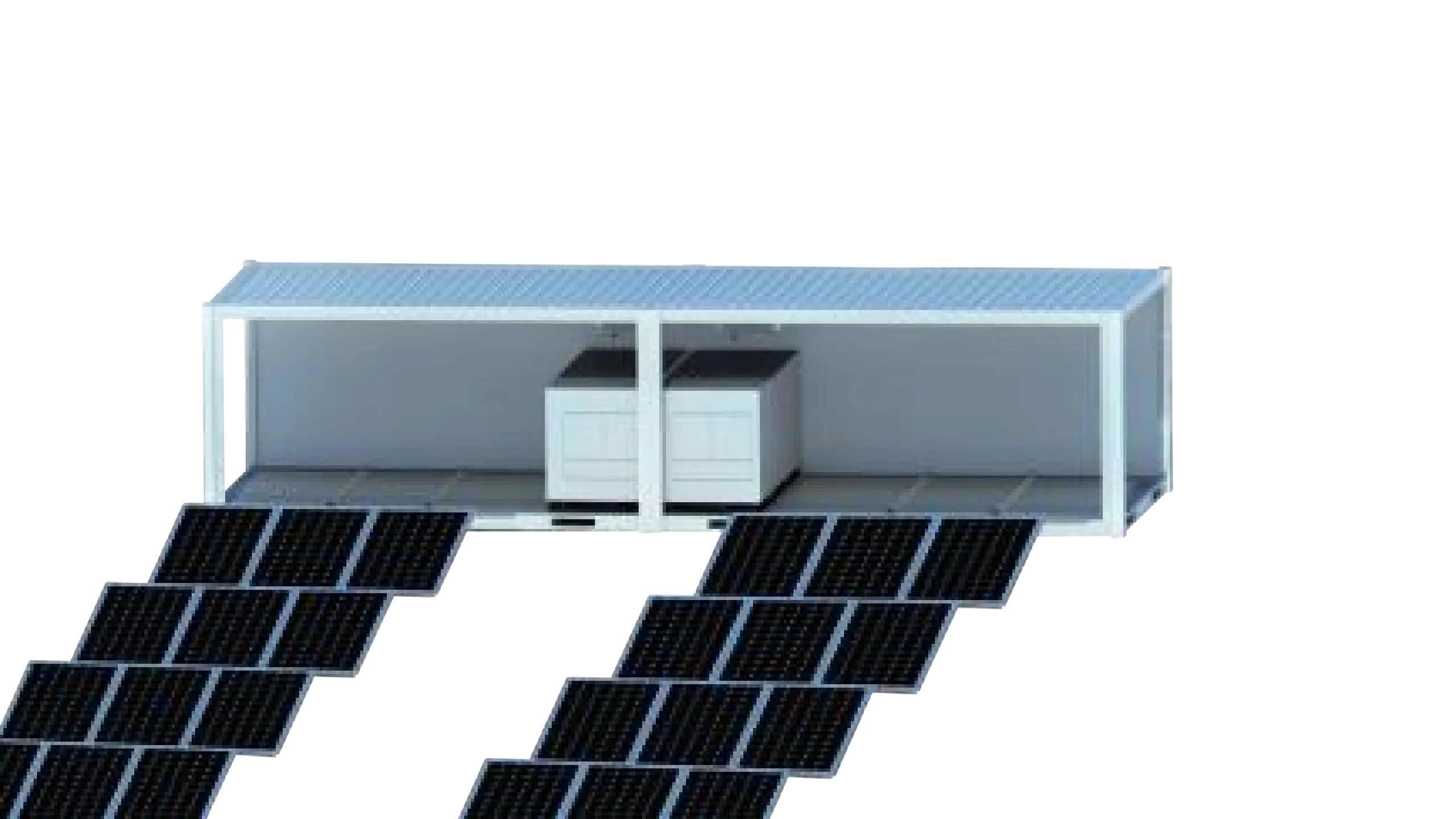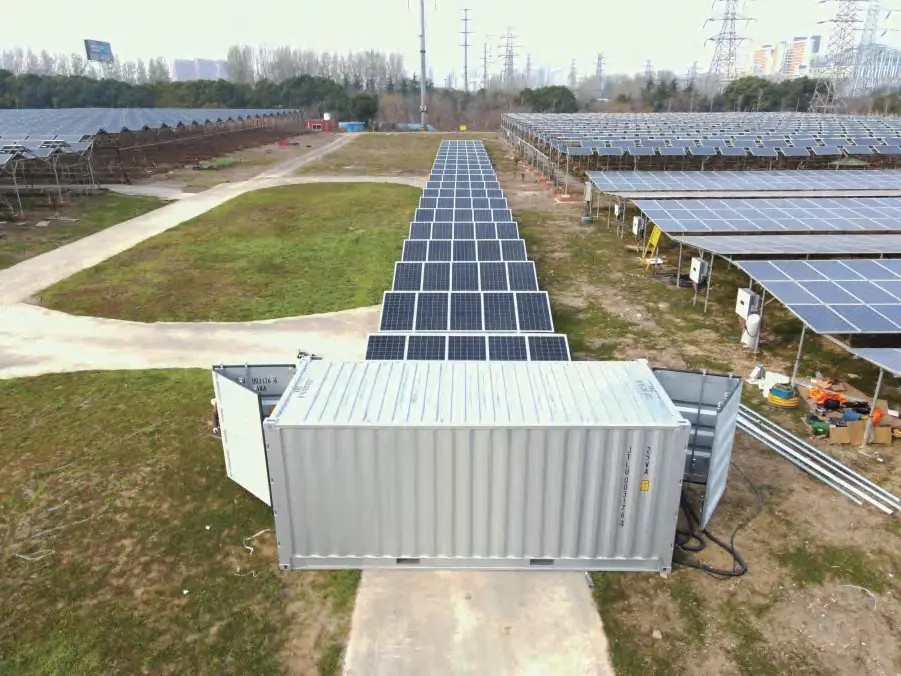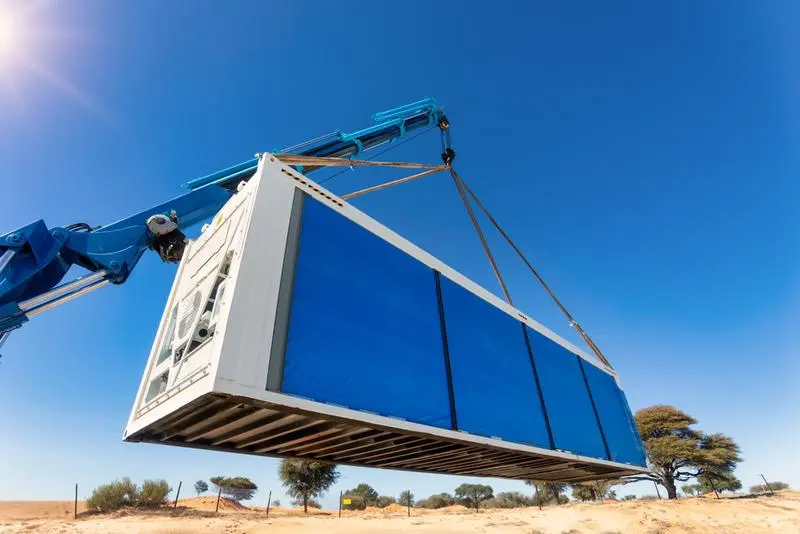Think about it: a shipping container rolls off a truck, is placed on a vacant patch of ground, and within two hours flat, deploys into a complete solar power station. No scaffolding necessary. No crane. No diesel fuel. Just clean, off-grid electricity—ready to use.
Sounds like something out of science fiction? It isn't. And it's all thanks to folding solar panels.
But that leads us to the question of the day:
Are folding solar panels practical?
especially when integrated into folding solar containers, which rely on them to deliver sustained power in off-grid or mobile uses.
Let's get to the reality on the tech.
First Things First: What Are Folding Solar Panels?
Let's establish what we're talking about before we talk about performance.
Foldable solar panels are solar panels that fold up into compact, stackable units. In some installations, they fold like a book. In larger installations—especially in container-mounted solar units—they extend hydraulic or mechanical arms to fan out from either side or the top of a repurposed shipping container.
You've probably seen photos of military bases, disaster relief areas, or off-grid building projects utilizing these systems. They set up fast, are easy to transport, and are becoming more powerful.
So, Are Folding Solar Panels Worth It?
Short answer: yes—but only if you use them correctly.
Let's break it down.

The Real Benefits of Folding Solar Panels
1.Mobility without compromise
You can fit 10kW–100kW of solar in a single 20- or 40-foot folding container. Ideal for uses where grid power is a fantasy.
2.Rapid deployment
A folding solar container is deployed in 1–3 hours—ideal for disaster response, mobile base stations, or temporary camps.
3.Flexible expansion
Need more power? Add an additional container. Or spread the second set of wings. No rewiring a mini power grid required.
4.Secure transport
As opposed to having rooftop panels weathered 24/7, folding panels stay safely indoors when not in use. That means less wear and tear, lower risk, and longer lifespan.
5.Economies of labor
Fewer people are required for installation, no cranes needed, and minimal equipment. On most applications, it's a real plug-and-play installation.
What to Watch Out For
- Weight and hydraulics
The mechanical components that fold/unfold panels require maintenance. Especially in snowy or sandy conditions, freeze or grit can lead to delays.
- Angle restrictions
Folding solar systems do not inherently allow dynamic panel angle adjustment, which would decrease efficiency in sub-optimal sun angles.
- Increased initial expense
Folding systems are more expensive than fixed-panel installations—although they often save money in the long term with reduced installation and shipping expenses.
Real Case: Folding Solar Container for Island Microgrid
A folding solar container was deployed on a tourist island in Indonesia in 2023 where boat-only access rendered conventional installation virtually impossible.
System specs:
- 15kW folding panel array
- 30kWh LiFePO₄ battery bank
- EMS + satellite monitoring
- Setup time: under 2 hours
- Diesel generator usage: reduced by 90%
The resort now advertises itself as "sun-powered luxury"—and the solar container is now a part of the guest tour.
Common Uses for Folding Solar Containers
- Mining, oil, emergency response mobile camps
- Off-grid islands
- Rapid power deployment for military uses
- Desert, Arctic scientific missions
- Construction sites with temporary but critical energy needs
If your project has to divert—or making permanent solar isn't feasible—foldable panels are well worth the investment.
What to Look for in an Excellent Folding Solar Container
Not all folding solar systems are created equal. Here's a brief overview:
| Feature | Why It Matters |
| Durable hinges and arms | Handles wind, dust, repeated folding |
| MPPT-based EMS | Efficient energy tracking and control |
| Modular battery system | Replace or scale batteries easily |
| Anti-reflective coated panels | Improves performance in low-angle sunlight |
| Wind load certification | Important in coastal or elevated terrain |
| Rust-resistant chassis | Especially near saltwater or tropical air |
Final Thought
So—are folding solar panels good, especially in a containerized application?
If your project demands portability, speed, and clean power without waiting on civil works or grid connection—then yes,they’re more than good. They're game-changing.
And what about the folding solar container itself? It might be the neatest means to harness sunlight into power—wherever your project leads you.
Interested in viewing a real-world folding solar battery system designed for field deployment?
Take a look at this off-grid-capable, modular solar solution:
Off-Grid Folding Solar System – LZYESS


